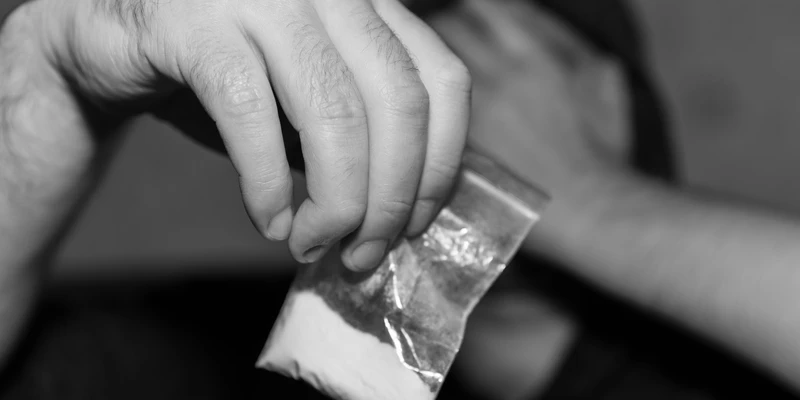
Table of Contents
- When Is Outpatient Treatment the Right Fit?
- Outpatient Program Options in Los Angeles
- CBT and Other Therapies for Meth Addiction
- Typical Schedule in Meth Outpatient Programs
- Meth Withdrawal Support in an Outpatient Setting
- Need to Detox?
- Costs of Outpatient Meth Rehab in LA
- Using Insurance for Outpatient Meth Rehab
- Outpatient Relapse Prevention Strategies
- Support Services After Outpatient Meth Rehab
- Transportation Help for LA Outpatient Clients
- Aftercare Planning for Meth Users in LA
- Finding Local Meth Outpatient Centers in LA

Methamphetamine use remains a significant public health concern in Los Angeles, with rising overdose rates and increasing strain on families and communities. The intense psychological grip of meth addiction can lead to long-term health consequences, employment struggles, and damaged relationships. Many people searching for treatment may feel uncertain or overwhelmed by the options, especially when trying to balance care with daily responsibilities.
Outpatient meth rehab is one path that offers structured support without requiring a residential stay. For Angelenos balancing work, school, childcare, or other life commitments, this approach can provide crucial flexibility. Outpatient programs, including intensive outpatient programs (IOPs), offer access to evidence-based therapies, peer support, and personalized treatment for meth addiction in LA.
These programs aim to help clients rebuild routine and accountability while addressing the underlying causes of meth use. Whether you’re seeking early intervention or transitioning from inpatient treatment, outpatient care can play a vital role in supporting sustained recovery. Understanding this option is the first step in choosing a method of healing that aligns with your life and long-term goals for sobriety.
When Is Outpatient Treatment the Right Fit?
Outpatient meth rehab may be an appropriate choice for individuals who need structured support but don’t require 24/7 supervision. This option works best for people with mild to moderate meth addiction, a stable living environment, and the ability to attend scheduled sessions consistently. If you’re motivated to recover and can maintain daily responsibilities—like work, school, or family care—while committing to treatment, outpatient care might align with your needs.
It’s also a good fit when you’ve just completed inpatient treatment and need a step-down level of care to continue progress in your recovery. Intensive outpatient programs (IOPs) offer more frequent therapy sessions and accountability, making them effective bridges between inpatient care and full independence.
However, outpatient rehab may not be suitable for those with severe meth use disorders, co-occurring mental health conditions, or unstable housing. In these cases, inpatient care or a residential meth treatment center could provide the safety and structure needed for early recovery. A professional assessment can help determine the most appropriate path.
Outpatient Program Options in Los Angeles
Los Angeles offers a broad range of outpatient meth treatment programs designed to meet people where they are in their recovery. These options vary in intensity and structure, allowing for personalized care without the need for inpatient stays. Some programs focus on early intervention and stabilization, while others provide long-term support tailored to ongoing recovery goals.
At the lower end of this spectrum, standard outpatient programs meet once or twice a week, mainly for counseling and check-ins. More robust support is available through partial hospitalization programs (PHPs), which offer daily, clinic-based treatment lasting several hours—ideal for those needing high structure with the flexibility of returning home at night. Intensive outpatient programs (IOPs) strike a balance, providing multiple days of structured therapy each week without requiring overnight stays. Many meth treatment centers in Los Angeles customize these levels of care, offering day or evening sessions to accommodate work and family responsibilities.
How IOP Supports Meth Recovery in LA
An intensive outpatient program (IOP) can be especially beneficial for individuals working to overcome meth addiction. IOPs in Los Angeles typically involve 9–12 hours of weekly programming spread over several days, offering a mix of group therapy, individual counseling, and relapse prevention planning. This structure promotes accountability while still allowing flexibility for work, school, or caregiving.
For those stepping down from inpatient care or managing stable meth use challenges, IOPs provide critical continuity of care. The focused environment makes space for therapies like CBT and motivational enhancement, helping build the skills needed for sustained recovery in real-world settings.

CBT and Other Therapies for Meth Addiction
Using CBT in Meth Outpatient Programs
Cognitive Behavioral Therapy (CBT) is one of the most widely used and effective approaches in outpatient meth addiction treatment. In an outpatient setting, CBT helps individuals learn how to identify the thoughts and behaviors that lead to meth use, and then develop healthier ways to respond. This structured approach teaches coping strategies, decision-making skills, and relapse prevention techniques that can be practiced in real-time during daily life.
Explore CBT for meth use, especially in outpatient settings, where therapists tailor sessions to the unique needs of each individual. In Los Angeles outpatient programs, therapists often tailor CBT sessions to align with the personal challenges and stressors faced by local clients, making the therapy both practical and culturally relevant.
Motivational Interviewing for Meth Recovery in LA
Motivational Interviewing (MI) is another key tool in outpatient recovery from meth addiction, especially for people who feel uncertain or unmotivated about stopping use. This approach centers on empathy and collaboration, helping individuals explore their own reasons for change in a non-judgmental setting.
Motivational therapy for addiction is often used in meth treatment centers across Los Angeles, where MI is paired with CBT to engage people who may be resistant to more directive styles of therapy. By focusing on internal motivation, MI supports individuals in setting meaningful goals and taking incremental steps toward lasting recovery.

Typical Schedule in Meth Outpatient Programs
Outpatient meth rehab offers structure and accountability while allowing you to maintain responsibilities like work, school, or family care. The typical schedule varies by program type, but most meth treatment centers in Los Angeles offer both standard and intensive outpatient options.
A standard outpatient program usually involves 2–3 sessions per week, with each visit lasting 1–2 hours. These sessions may include one-on-one therapy, group counseling, psychoeducation, or relapse prevention planning. In contrast, an intensive outpatient program (IOP) might require 9–12 hours per week across 3–5 days, offering more frequent sessions and deeper therapeutic engagement.
Many programs schedule appointments in the mornings, evenings, or weekends to accommodate different life situations. This flexibility can be helpful if you’re reintegrating into daily life, attending school, or working during recovery. While outpatient care is less time-consuming than inpatient rehab, consistency and engagement in the program are key to maintaining and building on recovery progress.
Meth Withdrawal Support in an Outpatient Setting
Meth withdrawal doesn’t always require an inpatient stay. In Los Angeles, many outpatient meth rehab programs offer structured meth withdrawal support that helps manage symptoms while allowing you to remain at home. These programs are especially helpful for people with stable living situations and mild to moderate withdrawal symptoms.
You may have access to hybrid care models or partnerships with local meth detox services that provide initial medical supervision, often including non-addictive medications to ease symptoms like fatigue, mood swings, or sleep problems. Once you’re stabilized, the outpatient team continues to monitor both physical and psychological responses to withdrawal.
Support also includes regular check-ins with medical staff, behavioral health support, and relapse prevention planning, especially during this critical early phase. Therapies like CBT and motivational interviewing may begin even during withdrawal to address cravings and coping mechanisms. If your symptoms intensify, an outpatient provider can help coordinate a transition to higher levels of care as needed, ensuring your safety throughout the detox process.
Costs of Outpatient Meth Rehab in LA
The cost of outpatient meth rehab in Los Angeles can vary widely, depending on the type of program, frequency of sessions, and included services like counseling, drug testing, or case management. On average, outpatient programs may range from $1,000 to $10,000 per month. More intensive support, such as an intensive outpatient program (IOP), generally costs more due to more frequent therapy and structured care.
In Los Angeles, access to affordable care can be challenging given the overall cost of living—but help is available. Some meth treatment centers offer sliding scale fees based on income, while others accept Medicaid or private insurance. Exploring your coverage options through insurance for outpatient rehab can significantly reduce out-of-pocket costs. It’s important to speak directly with treatment providers about payment plans, available aid, and what services are included with the cost to avoid any surprises and allow for more informed decisions when seeking help.
Using Insurance for Outpatient Meth Rehab
Using Medicaid for Meth Outpatient in LA
In Los Angeles, Medi-Cal—California’s version of Medicaid—covers many outpatient services for meth addiction recovery. These can include individual and group therapy, case management, and sometimes medication-assisted treatment depending on medical needs. Most licensed treatment centers that accept Medi-Cal will coordinate care through the Drug Medi-Cal Organized Delivery System (DMC-ODS), aimed at expanding access to timely, evidence-based treatment. It’s important to confirm eligibility and find programs that are specifically DMC-ODS certified Medicaid options in Los Angeles.
Cigna Coverage for Meth Rehab in LA
Many outpatient meth rehab programs in Los Angeles accept private insurance plans like Cigna. Coverage can vary depending on the plan’s behavioral health benefits, but typically includes services such as intensive outpatient programs (IOPs), cognitive behavioral therapy sessions, and follow-up care. Preauthorization might be required before starting treatment, so reaching out to the plan provider or having the treatment center verify Cigna for meth rehab early can help avoid delays. Cigna often partners with in-network facilities, which can reduce out-of-pocket costs for clients seeking structured recovery support.

Outpatient Relapse Prevention Strategies
Staying clean while living offsite during recovery from meth addiction takes sustained commitment, structure, and support. Outpatient programs in Los Angeles equip individuals with practical tools and resources to navigate life post-treatment while minimizing relapse risk. These plans are highly individualized and focus on staying connected to recovery—not just during treatment, but long after formal sessions end.
Key strategies include ongoing therapy (both individual and group), coping skill development, and relapse prevention planning. Cognitive Behavioral Therapy (CBT) and motivational techniques help people recognize triggers and respond with resilience. Many centers also encourage involvement in 12-step or peer-led support groups, which can create accountability and a sense of community. Long-term recovery support may also involve job readiness guidance, sober housing referrals, and connections to aftercare for meth recovery. With a wraparound relapse prevention plan, outpatient clients build confidence to sustain a drug-free lifestyle surrounded by a strong support network.
Support Services After Outpatient Meth Rehab
Stepping down from outpatient meth rehab doesn’t mean support ends—it simply evolves. Continuing care plays a crucial role in maintaining sobriety, especially as you transition to daily life outside structured treatment. Many treatment centers in Los Angeles offer post-program options like alumni support networks, sober living environments, and ongoing individual or group therapy.
Alumni programs help you stay connected with peers and provide a safe space for open dialogue about recovery challenges. For those who need additional structure, sober living homes offer a drug-free environment with accountability and peer support. Continued therapy—whether in-person or virtual—can keep you grounded and reinforce relapse prevention strategies.
Some individuals also benefit from community recovery meetings or mentorship programs focused on long-term wellness. The key is to build a sustainable support network that meets your evolving needs as you move forward in your meth recovery journey. Aftercare isn’t one-size-fits-all, but with the right resources, long-term stability is absolutely possible.

Transportation Help for LA Outpatient Clients
Getting to outpatient meth rehab in Los Angeles can be a hurdle, especially in a city with limited public transit in some areas. Many meth treatment centers understand this and offer help such as ride-share vouchers, shuttle services, or transit passes to ensure you can attend regularly. For those in intensive outpatient programs that meet several times per week, reliable transportation is essential for staying on course with treatment for meth addiction in LA.
If affordability or neighborhood distance stands in your way, ask potential providers about transportation support during intake. Don’t let geography prevent you or a loved one from receiving the care you need to recover.
Aftercare Planning for Meth Users in LA
Completing outpatient meth rehab is a major milestone, but long-term recovery often depends on strong aftercare planning. Aftercare is not just an optional step—it’s a structured phase of recovery that supports people in stabilizing their progress and avoiding relapse. A good plan includes regular follow-up therapy, peer support groups, relapse prevention skills, and access to a reliable support network.
Many outpatient meth treatment centers in Los Angeles help clients create personalized aftercare strategies before discharge. This can involve scheduling ongoing counseling, enrolling in local recovery groups, and identifying early triggers or stressors. Including loved ones in the process—whether through family therapy or support meetings—can offer added reinforcement. With the right plan and resources in place, those in recovery can stay grounded and maintain the gains made during treatment.

Finding Local Meth Outpatient Centers in LA
If you or someone you care about is seeking treatment for meth addiction in Los Angeles, there are compassionate outpatient programs available throughout the region. Outpatient meth rehab offers flexibility while still providing access to therapeutic care, making it an accessible option for many Angelenos.
Finding a nearby center that aligns with your unique needs—whether that includes intensive outpatient programs, meth withdrawal support, or aftercare for meth recovery—can make a meaningful difference. Begin your search with trusted hubs that highlight accredited facilities across the city and surrounding areas.









































